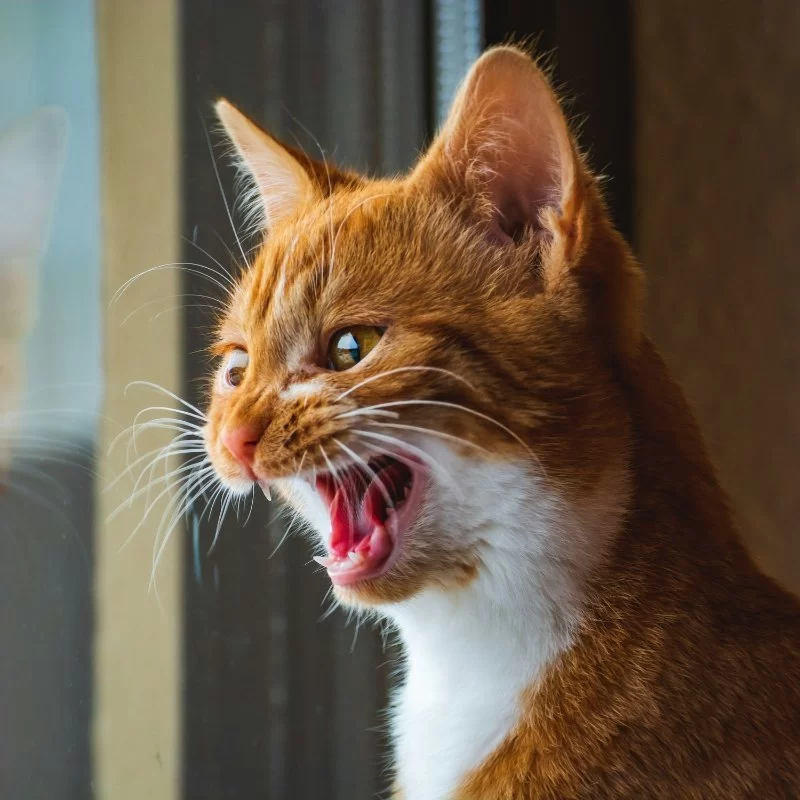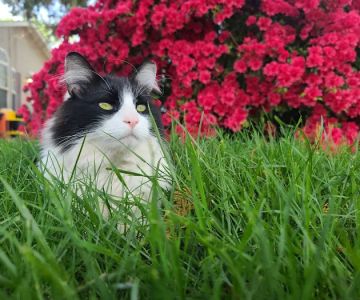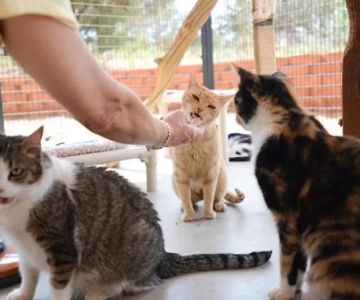- understanding-excessive-meowing-in-cats
- behavioral-reasons-behind-meowing
- how-to-respond-to-different-types-of-meowing
- medical-conditions-and-expert-diagnosis
- practical-strategies-to-manage-excessive-meowing
1. Understanding Excessive Meowing in Cats
Cats are naturally vocal creatures, but when meowing becomes excessive, it often signals more than just a chatty personality. Understanding why cats meow excessively can help pet owners respond more effectively and compassionately. Whether your cat begins howling at night, meowing at the door, or vocalizing non-stop when you're on a work call, there’s usually a reason behind it.
Not all meowing is problematic. Some cats, particularly Siamese and other vocal breeds, are simply more talkative. However, sudden changes or unusually persistent vocalizations can indicate stress, health issues, or unmet needs. At Hidden Brook Veterinary, we often hear stories from cat parents unsure whether their feline is just "chatty" or signaling something more serious.
2. Behavioral Reasons Behind Meowing
2.1 Attention-Seeking and Boredom
One of the most common reasons cats meow excessively is to get your attention. If your cat meows every time you sit down to relax or during video calls, they might simply be bored. Indoor cats, in particular, need stimulation. When they don’t get it, they vocalize.
2.2 Hunger and Feeding Schedules
Cats are creatures of habit. If you feed your cat at 7:00 a.m. every morning, don’t be surprised if they start meowing at 6:45 a.m.—every day. Some cats meow persistently when hungry or if their feeding schedule is inconsistent.
2.3 Separation Anxiety
Although cats are often seen as independent, many form strong attachments to their humans. Excessive meowing when you leave or return home can indicate separation anxiety. This condition often goes unnoticed but can be emotionally distressing for both cat and owner.
2.4 Habit Reinforcement
If your cat meows and you respond—whether by feeding, petting, or simply talking back—you may have unintentionally trained your cat that meowing works. Behavioral conditioning plays a big role in how these patterns develop.
3. How to Respond to Different Types of Meowing
3.1 Differentiating Between Normal and Concerning Vocalizations
A high-pitched, persistent cry may indicate pain or distress, while a soft meow may just be a greeting. Pay attention to patterns. Does your cat meow only when left alone? During feeding times? Or randomly throughout the night? Context matters.
3.2 Case Study: Luna the Talkative Tabby
Luna, a three-year-old tabby, meowed constantly through the night. Her owners thought she was just vocal by nature, but a consultation with Hidden Brook Veterinary revealed Luna was under-stimulated during the day. After adding a window perch, puzzle feeders, and more interactive playtime, Luna’s nighttime meowing significantly decreased.
3.3 Don’t Punish, Understand
Avoid yelling or punishing your cat for meowing. This can increase anxiety and make the behavior worse. Instead, redirect their energy—play, feed, or provide calming spaces. Use meowing as a form of communication rather than a nuisance.
4. Medical Conditions and Expert Diagnosis
4.1 Health Issues That Can Cause Excessive Meowing
Sometimes, excessive meowing isn’t behavioral—it’s medical. Hyperthyroidism, hypertension, urinary tract infections, or even dental pain can cause a cat to vocalize more than usual. If your cat's behavior changes suddenly or becomes unmanageable, seek professional advice.
4.2 The Importance of Veterinary Evaluation
A thorough checkup at Hidden Brook Veterinary can help determine whether a health condition is contributing to excessive vocalization. Blood tests, urine analysis, and physical exams often reveal issues that may not be obvious at home.
4.3 Age-Related Cognitive Disorders
Senior cats may develop cognitive dysfunction syndrome, similar to dementia in humans. They may meow at night due to confusion or disorientation. Regular veterinary visits are key to identifying these issues early and developing a management plan.
5. Practical Strategies to Manage Excessive Meowing
5.1 Structured Feeding and Playtime
Establishing a routine helps reduce anxiety. Feed your cat at the same times daily and dedicate time for play. Wand toys, laser pointers, and treat balls are excellent for mentally and physically stimulating your cat.
5.2 Environmental Enrichment
Boredom is a significant trigger for meowing. Add cat trees, shelves, window hammocks, and interactive toys to your home. Giving your cat more things to do can naturally reduce their vocalizations.
5.3 Use of Calming Products
Feline pheromone diffusers, anxiety-reducing sprays, and calming treats can be helpful. At Hidden Brook Veterinary, we offer science-backed calming products that many pet owners have found effective in reducing stress-related meowing.
5.4 Professional Behavioral Consultation
If all else fails, a professional consultation can help identify underlying issues and provide customized strategies. Behavior experts often work closely with vets to ensure a comprehensive approach to feline vocal behavior.












